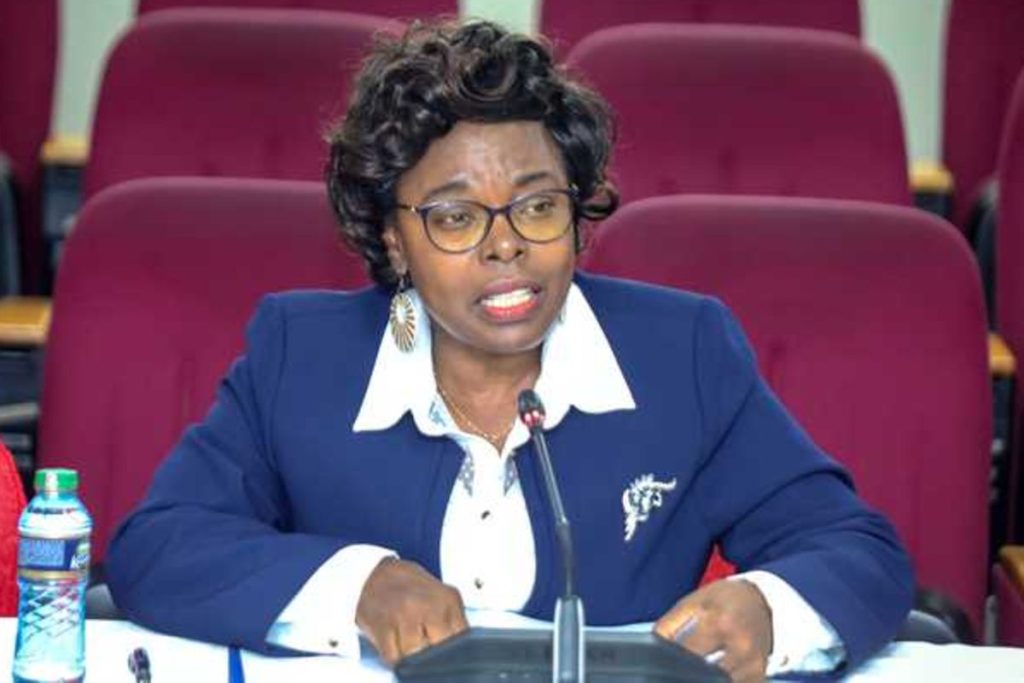Government travel budget almost doubles in three months a ban imposed to reduce waste while globe-trotting public officials ignored austerity measures.
From October to December 2023, the national government spent Sh7.05 billion on local and foreign travel, a considerable increase from Sh4.33 billion in the previous three months to September.
A circular dated October 2, 2023 had ordered the National Treasury to halve all foreign and local travel budgets, ban non-essential foreign travel and limit the size of Kenyan delegations.
Addressed to all senior government officials, including cabinet secretaries and principal secretaries, the circular from chief of staff and head of the civil service Felix Koskei cites the need to ensure prudent spending of public resources.
However, Budget Comptroller Margaret Nyakang'o's latest report shows that despite the ban, travel spending never slowed down, but instead increased significantly.
Koskei Circular
During the first six months of the 2023/24 financial year, travel expenditure stood at Sh11.38 billion, compared to Sh8.11 billion recorded in a similar period during the financial year 2022/23.
This included Sh7.67 billion for domestic travel and Sh3.71 billion spent on foreign travel between July 1 and December 31, 2023, according to the report released last month.
Another report released in November last year showed that Sh4.33 billion was spent on travel from July to September 2023.
Given that the figure for the six months to December was Sh11.38 billion, of which Sh4.33 billion was spent up to September, this means that between October and December 2023, public officials spent An additional Sh7.05 billion.
A breakdown of the Sh4.33 billion spent in the first three months of the 2023/24 financial year – which was over Sh3.37 billion recorded in a similar period the previous year – included 3, 16 billion shillings (domestic travel) and 1 shilling. 17 billion (travel abroad).
In his circular, Mr. Koskei had informed senior officials, including governors and clerks of Parliament as well as county assemblies, of the suspension of non-essential travel. With this circular, official trips abroad for assessment and study visits, training, conferences, academic meetings, exhibitions and association meetings have been suspended with immediate effect.
Sponsored events that require a quarter daily allowance and a ticket upgrade are also suspended, except when the guest has expressly waived the additional amount provided.
Public officials who were required to travel for scheduled events in prohibited categories were asked to request virtual participation where possible.
Alternatively, they were to engage the Ministry of Foreign Affairs and Diaspora to ensure the participation of diplomatic officials from host countries.
“For clarity, foreign missions will attend to all matters and engagements in which Kenya has an interest or has been invited to participate, except those matters in which the direct participation of line ministries is essential,” indicates the circular.
The Foreign Ministry has been tasked with halving the number of people accompanying the president, first lady, vice president and first cabinet secretary.
Additionally, the circular limited the size of delegations for other officials authorized to travel.
Delegations led by cabinet secretaries were to be composed of a maximum of three people, including the CS and a technical manager specialized in the field of engagement abroad.
Critical Operations
A similar condition applied to a delegation headed by a governor.
A principal secretary could only travel with one other person, according to the circular. A similar condition applied to delegations headed by chairmen or directors-general of constitutional commissions and independent offices.
CEOs and presidents of state-owned companies had to travel alone.
The circular explained that limited public resources had “necessitated the need to reduce and prioritize expenditure, focusing on critical operations and activities that are essential to the delivery of services to citizens”.
Travel spending has increased over the years, according to previous budget performance review reports from the Comptroller of the Budget.
From July 1, 2022 to June 30, 2023, which includes the first 10 months of President Ruto's administration, the total expenditure of ministries, departments and agencies stood at Sh20.37 billion.
Covid restrictions are lifted
It included Sh14.04 billion for domestic travel and Sh6.33 billion (overseas). The National Assembly recorded the highest domestic and foreign travel at Sh4.81 billion and Sh1.59 billion respectively.
In the previous year, from July 2021 to June 2022, travel expenditure stood at Sh20.17 billion, an increase from Sh14.23 billion recorded in FY2020 /21. This included Sh14.13 billion (domestic) and Sh6.04 billion (foreign).
At the time, the increase was attributed to the government's lifting of Covid-19 travel restrictions.
Travel costs constitute a significant component of budget items classified under “Use of goods and services” which include printing and advertising, rent and rates for non-residential buildings, training, hospitality, legal costs, insurance as well as maintenance costs of motor vehicles and other assets.


